The politics of Croatia are defined by a parliamentary, representative democratic republic framework, where the Prime Minister of Croatia is the head of government in a multi-party system. Executive power is exercised by the Government and the President of Croatia. Legislative power is vested in the Croatian Parliament. The Judiciary is independent of the executive and the legislature. The parliament adopted the current Constitution of Croatia on 22 December 1990 and decided to declare independence from Yugoslavia on 25 May 1991. The Constitutional Decision on the Sovereignty and Independence of the Republic of Croatia came into effect on 8 October 1991. The constitution has since been amended several times. The first modern parties in the country developed in the middle of the 19th century, and their agenda and appeal changed, reflecting major social changes, such as the breakup of Austria-Hungary, the Kingdom of Serbs, Croats and Slovenes, dictatorship and social upheavals in the kingdom, World War II, the establishment of Communist rule and the breakup of the SFR Yugoslavia.

League of Communists of Croatia was the Croatian branch of the League of Communists of Yugoslavia (SKJ). Until 1952, it was known as Communist Party of Croatia.

Parliamentary elections to elect all 151 members of the Croatian Parliament were held on November 23, 2003. They were the 5th parliamentary elections to take place since the first multi-party elections in 1990. Turnout was 61.7%. The result was a victory for the opposition Croatian Democratic Union party (HDZ) which won a plurality of 66 seats, but fell short of the 76 needed to form a government. HDZ chairman Ivo Sanader was named the 8th Prime Minister of Croatia on 23 December 2003, after parliament passed a confidence motion in his government cabinet, with 88 Members of Parliament voting in favor, 29 against and 14 abstaining. The ruling coalition, consisting of the Social Democratic Party (SDP), Croatian People's Party (HNS), Croatian Peasant Party (HSS), Party of Liberal Democrats (Libra) and the Liberal Party (LS) did not contest the elections as a single bloc. Namely, the SDP ran with the Istrian Democratic Assembly (IDS), the Party of Liberal Democrats (Libra) and the Liberal Party (LS), HNS ran with the Alliance of Primorje-Gorski Kotar (PGS) and the Slavonia-Baranja Croatian Party (SBHS), while HSS ran on its own.

The Independent Democratic Serb Party, known as SDSS, is a social democratic, socially liberal and pro-european political party representing the Serb minority in Republic of Croatia.

The Croatian Parliament or the Sabor is the unicameral legislature of the Republic of Croatia. Under the terms of the Croatian Constitution, the Sabor represents the people and is vested with legislative power. The Sabor is composed of 151 members elected to a four-year term on the basis of direct, universal and equal suffrage by secret ballot. Seats are allocated according to the Croatian Parliament electoral districts: 140 members of the parliament are elected in multi-seat constituencies. An additional three seats are reserved for the diaspora and Croats in Bosnia and Herzegovina, while national minorities have eight places reserved in parliament. The Sabor is presided over by a Speaker, who is assisted by at least one deputy speaker.

The Croatian Democratic Union is the major conservative, centre-right political party in Croatia. It is one of the two major contemporary political parties in Croatia, along with the centre-left Social Democratic Party (SDP). It is currently the largest party in the Sabor with 61 seats. The HDZ ruled Croatia from 1990 before the country gained independence from Yugoslavia until 2000 and, in coalition with junior partners, from 2003 to 2011, and since 2016. The party is a member of the European People's Party (EPP). The HDZ's leader, Andrej Plenković, is the current Prime Minister of Croatia, having taken office following the 2016 parliamentary election.
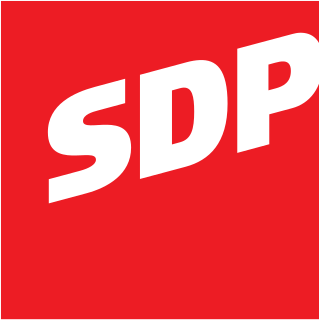
The Social Democratic Party of Croatia is a social-democratic political party and the largest party of the Croatian centre-left. The SDP is one of the two major political parties in Croatia, along with the centre-right Croatian Democratic Union (HDZ). The SDP is strongly pro-European.

The Croatian People's Party – Liberal Democrats is a social-liberal political party in Croatia.

Parliamentary elections were held in the Socialist Republic of Croatia between 22 and 23 April 1990; the second round of voting occurred on 6–7 May. These were the first free, multi-party elections held in Croatia since 1938, and the first such elections for the Croatian Parliament since 1913. Voters elected candidates for 356 seats in the tri-cameral parliament; the turnout in the first round ranged between 76.56% and 84.54% for various parliamentary chambers. In the second round, the turnout was 74.82%. The Croatian Democratic Union (HDZ) won 205 seats, ousted the League of Communists of Croatia – Party of Democratic Reform (SKH-SDP) from power and ended 45 years of communist rule in Croatia. The new parliament convened for the first time on 30 May, elected Franjo Tuđman as President of the Croatian Presidency and soon after renamed the office to President of Croatia.

Dražen Budiša is a Croatian politician who used to be a leading opposition figure in the 1990s and a two-time presidential candidate. As president of the Croatian Social Liberal Party through the 1990s he remains to date the only Leader of the Opposition not to have been from either the Croatian Democratic Union or the Social Democratic Party.
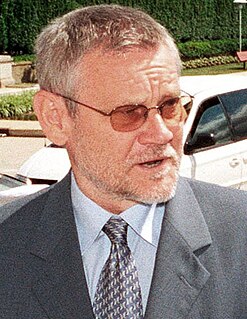
Parliamentary elections for the Chamber of Representatives of the Croatian Parliament were held on 3 January 2000. These were the first elections to be held after the expiration of a full 4-year term of the previous Chamber of Representatives.

Savka Dabčević-Kučar was a Croatian communist politician. She was one of the most influential Croatian female politicians during the communist period, especially during the Croatian Spring when she was deposed. She returned to politics during the early days of Croatian independence as the leader of the Coalition of People's Accord and the Croatian People's Party. From 1967 to 1969 she served as the Chairman of the 5th Executive Council of the Socialist Republic of Croatia, one of eight constituent republics and autonomous provinces of the Socialist Federative Republic of Yugoslavia. She was the first woman in Europe to be appointed head of government of a political entity and the first female in the post-World War II Croatia to hold an office equivalent to a head of government.
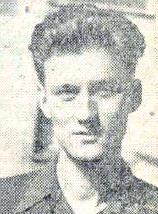
Ante "Miko" Tripalo was a Croatian politician. He was one of the members of Croatian Spring, a movement for higher level of autonomy of SR Croatia within SFR Yugoslavia.
The Zagreb crisis is the political crisis that followed the elections for the City of Zagreb local assembly held in October 1995. During the crisis the winning parties were unable to appoint their candidate for the Mayor of Zagreb because President of Croatia Franjo Tuđman refused to provide the formal confirmation of their decision.

Parliamentary elections were held in Croatia on 25 November 2007 and for overseas voters on 24 and 25 November. The campaign officially started on 3 November. The President of Croatia announced elections on 17 October and 14 days were allowed for candidate lists to be submitted.

The Seventh Government of the Republic of Croatia was the first of two Croatian Government cabinets led by Prime Minister Ivica Račan. It was appointed on 27 January 2000 by a decree of the Acting President of the Republic and Speaker of Parliament, Vlatko Pavletić. The cabinet was confirmed by a parliamentary vote of confidence in the Chamber of Representatives on 2 February 2000, with 122 of 151 Members of Parliament voting for, 1 against and 1 abstaining. Its term ended on 30 July 2002, when it was reconstructed and replaced by Cabinet of Ivica Račan II. The cabinet was formed following the 2000 parliamentary elections, in which the centre-right party Croatian Democratic Union (HDZ) was defeated by a broad coalition of several centre-left parties. This marked an end to HDZ's dominance in Croatian politics since the first multi-party election in 1990. However, the period under Prime Minister Račan was marred with constant disagreements among coalition members, which later led to some parties leaving the ruling coalition. This ultimately paved the way for HDZ's return to power in the 2003 parliamentary elections.
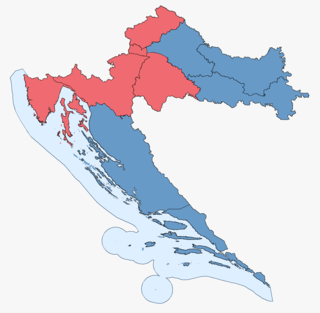
Parliamentary elections were held in Croatia on 8 November 2015. All 151 seats in the Parliament were up for election. This parliamentary election was the 8th since the first multi-party election in 1990 and the first since Croatia joined the European Union in 2013. The ruling center-left Croatia is Growing coalition, led by Prime Minister Zoran Milanović, was challenged by the center-right Patriotic Coalition led by the HDZ and headed by its party chairman Tomislav Karamarko, and also faced several new political coalitions.
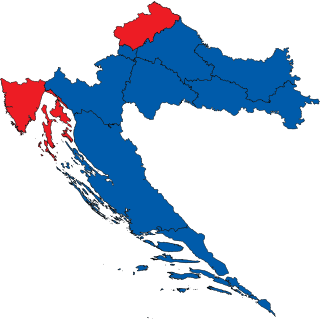
The 2020 Croatian parliamentary election took place on 5 July 2020. They were the tenth parliamentary elections since the first multi-party elections in 1990 and elected the 151 members of the Croatian Parliament. 140 Members of Parliament were elected from geographical electoral districts in Croatia, three MPs were chosen by the Croatian diaspora and eight MPs came from the ranks of citizens registered as belonging to any of the 22 constitutionally recognized national minorities.
The Croatian Left has consisted of a broad range of individuals, groups, and political parties who seek egalitarian, economic, social and cultural rights in Croatia. Left wing ideologies came to Croatia in the late 19th century during the Austria-Hungary regime. In 1894, the Social Democratic Party of Croatia and Slavonia was formed. It was the first workers party in Croatia at the time. In the Kingdom of Serbs, Croats and Slovenes the leftist movement grew but it was suppressed by the royal government. In 1920, the Communist Party of Yugoslavia was proclaimed illegal and its sympathizers were brutally persecuted after winning a large number of positions in the local elections. During the 1920s, Stjepan Radić and his Croatian Peasant Party led a centre-left agrarianism and anty-royalist policy. They were the leading Croatian political party at the time. After the assassination of Radić in 1929, the Croatian Peasant Party was taken over by Vlatko Maček who enforced a more conservative and nationalist rhetoric. During the Socialist Yugoslavia era, the League of Communists of Yugoslavia was the only legal party in the country. In 1990, political plurality was restored and a number of left-wing parties emerged with the most notable one being the Social Democratic Party of Croatia.

The 2019 European Parliament election in Croatia were held on 26 May 2019, electing members of the national Croatia constituency to the European Parliament. These were the third such elections in the country since its accession to the European Union in 2013.















